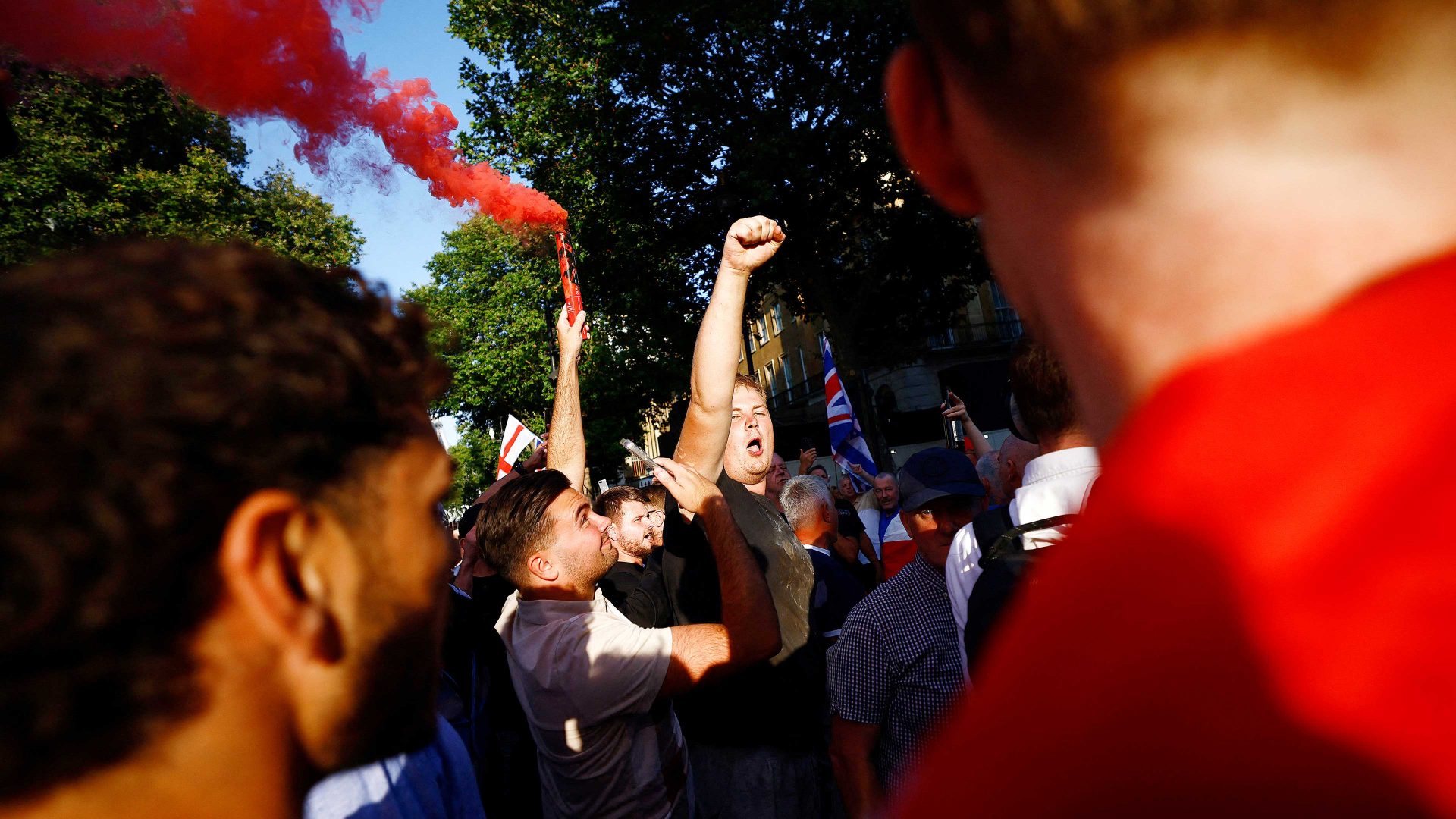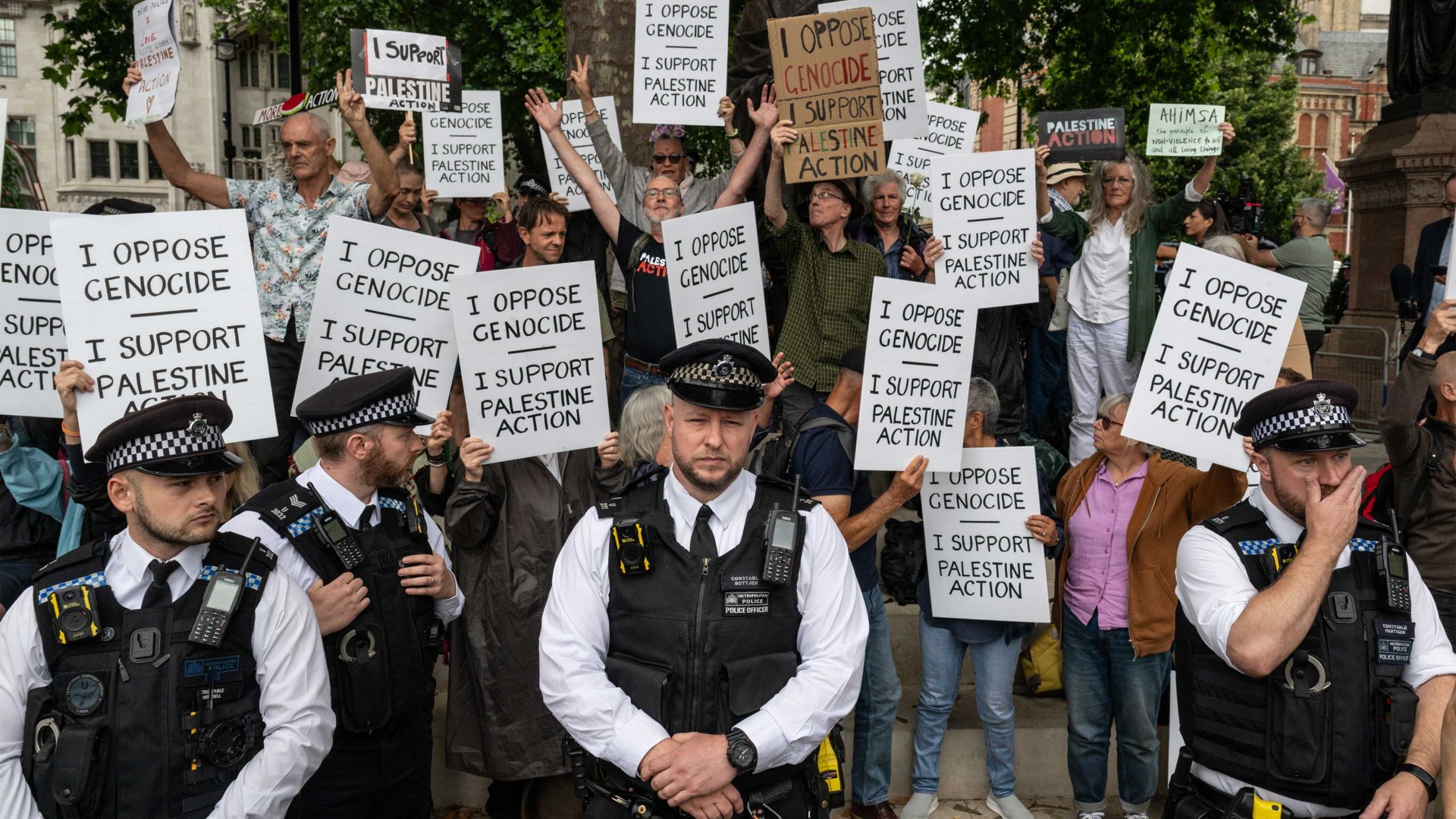Back in May, Keir Starmer declared Reform UK – not the Conservative Party – to be the government’s main opposition. But does that mean aping Reform by accepting its claims on immigration, and responding accordingly, or by confronting the glaring errors in its diagnosis of modern Britain?
Two months ago, the answer seemed clear after Starmer delivered a speech arguing that the UK risked becoming an “island of strangers” unless it addressed a “squalid chapter” of rising immigration. But just a few weeks later, the prime minister resiled from that language, admitting he “deeply regrets” its use. Downing Street has now thrown its backing behind a new cross-party social cohesion commission, led by former Labour MP Jon Cruddas and former Conservative home secretary Sajid Javid. This feels more constructive.
Reform-adjacent thinkers such as Matthew Goodwin present a toxic – but for some, intoxicating – narrative that Britain’s increasingly ethnically diverse society is at the root of national decline. This is lurid rubbish. The UK has a broadly positive story to tell about immigration, integration and social cohesion. As the analyst and thinker Sam Freedman outlined last year, the UK is one of only two countries in Europe where second-generation immigrants, born in the UK to immigrant parents, outperform non-immigrants in the education system.
This positive education picture drives greater levels of integration; and there is evidence that British society is becoming less segregated. People in the UK tend to be more tolerant of immigrants than in many other countries. In 2022, just 5% of British voters said they would not like to have immigrants as neighbours, compared to 30% in Japan, 26% in Greece, 18% in Italy and 10% in France.
This doesn’t mean there are no problems, or that social cohesion is something politicians can ignore. Although we should be wary of sensational projections that the white British population will be in the minority in decades to come, there is no question Britain will continue to become more diverse unless immigration levels fall sharply. There is no reason why this could not be a great thing for the UK; but there are several factors that make it risky to assume it poses no challenge to cohesion.
First, diversity is increasing while living standards have been stagnant since the financial crisis. There are no signs of this abating. Last month, the Resolution Foundation projected that the poorer half of British households will be worse off by the end of this decade than they were in 2020. The UK has some of the sharpest regional inequalities in the OECD. This is fertile territory for politicians of the right to stir up resentment.
Research from More in Common shows lower income Britons are more likely to feel less trusting and more disconnected from society – Reform supporters and non-voters are also more likely to say they feel disconnected from society than supporters of other parties. 47% of all voters say multiculturalism harms Britain’s national identity, compared to 53% who say it benefits it. The proportion of Reform supporters saying multiculturalism is harmful is much higher: 80%.
Second, social media fuels polarisation and spreads misinformation like wildfire. This was a key factor in the Southport riots last summer. In the context of weaker social bonds and low levels of social trust, social media misinformation becomes even more provocative and dangerous.
But it would be wrong to assume that all would be fine if only the right was not trying to fuel resentment, with the assistance of social media. There are serious problems occurring with integration among immigrant communities and the left has been reluctant to address them head-on. This is most obviously the case with the rape gangs that disproportionately involved Pakistani men from insular, socially conservative communities. The authorities failed to grapple with the heinous crimes committed against predominantly white working-class vulnerable girls. We still do not have a clear national picture of the extent of this type of offending. We also do not know whether the reasons that local leaders and professionals looked the other way have been addressed.
The response that men of all ethnic backgrounds sexually abuse children and that the most common form of child sexual abuse occurs within friends and family networks falls dreadfully short. It is an attempt to downplay uncomfortable truths about the grooming gangs, including the fact that the pimping and the rapes had an unquestionably racist element, in how the perpetrators viewed white girls.
This is surely the worst example of state agencies looking the other way, but there are others, such as the failure of the authorities to protect the Batley teacher who went into hiding after he was accused of blasphemy by some in the local Muslim community, or to challenge the so-called “Trojan Horse” state-funded schools in Birmingham that were teaching children that a woman cannot ever refuse her husband sex. Such incidents are not common, but the fact they happened at all shows that there are issues when it comes to inter-community relations.
The social cohesion commission has been endorsed not just by Keir Starmer but also Kemi Badenoch, and its members span former Green party leader Caroline Lucas to Reform party supporter Tim Montgomerie. The risk is that its political latitude will make developing a shared understanding of the social cohesion challenges facing the UK impossible, let alone the policy and cultural prescriptions that might shore up societal resilience to some of the threats outlined here.
But the fact it was possible to sign up such a diverse group of commissioners is a positive first step. And perhaps it will help move us away from a binary argument, in which growing ethnic diversity is either an existential threat, or an unalloyed and risk-free boon.




